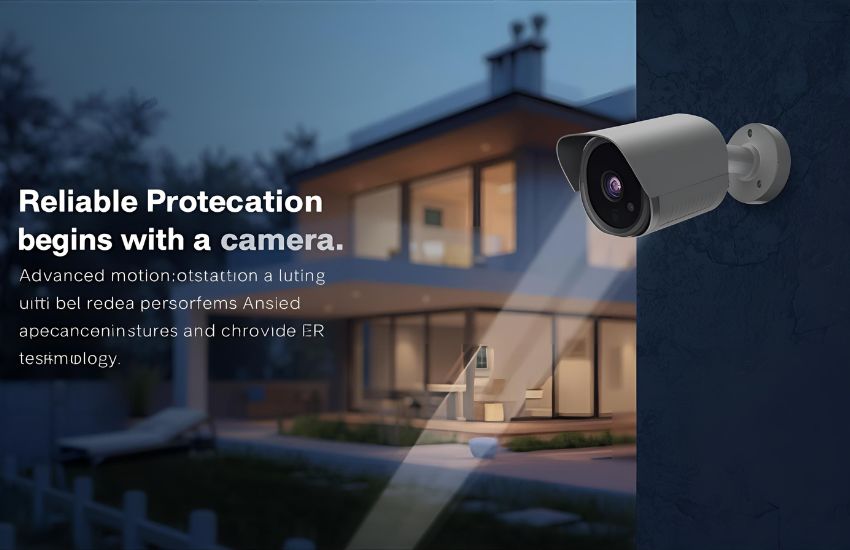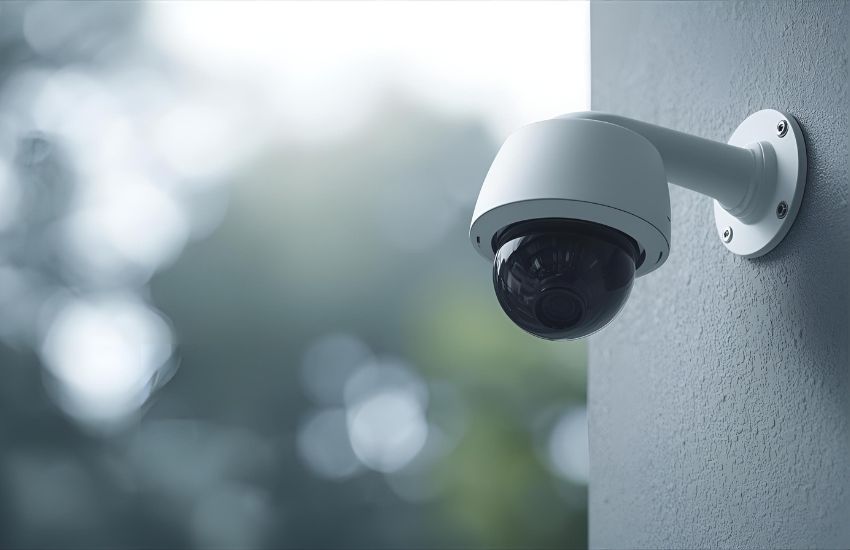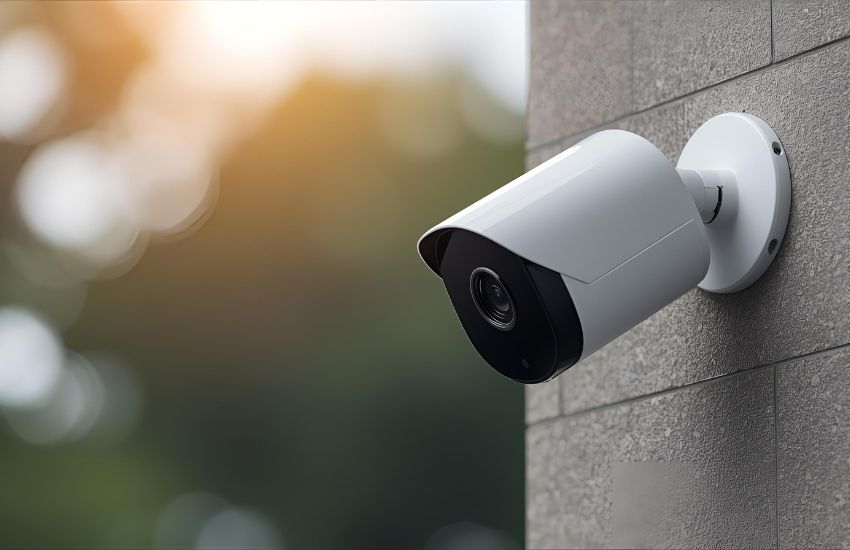The foundation of reliable protection lies in choosing the right security camera system, and a smart IP camera is increasingly becoming the preferred solution for effective surveillance. Unlike traditional analog cameras or BNC camera setups, an IP camera offers superior flexibility, integration, and ease of installation. Leveraging technologies such as Power over Ethernet (PoE), these cameras simplify wiring while delivering high-quality video with impressive 4K resolution, ensuring you capture every detail with clarity.
Reliable protection begins with a smart IP camera, offering advanced features like high video quality, remote monitoring, and motion detection. These cameras provide real-time alerts and easy integration with security systems, ensuring your property stays secure. Investing in a smart IP camera means smarter, more efficient surveillance for peace of mind anytime, anywhere.
This blog will explore why investing in a smart IP camera system is essential for reliable protection. You will learn how 4K resolution, PoE technology, and network video recorders (NVRs) contribute to a modern, efficient camera system tailored to meet your security needs.
The Advantages of a 4K IP Camera System for Reliable Security

A 4K IP camera system offers significant advantages that elevate your security to a new level of reliability and clarity. Compared to traditional BNC security cameras, which rely on coaxial cable connections and often integrate with a digital video recorder (DVR) system, a 4K IP camera system uses ethernet cable technology to deliver superior image quality and flexibility. The sharpness and detail provided by a 4K security camera enable you to capture clear footage that is essential for accurate monitoring and incident analysis.
While a 4K BNC camera can provide high resolution, the 4K BNC camera vs. IP camera system debate often favors IP solutions due to their scalability and ease of integration within modern surveillance systems. IP camera systems are typically managed through network video recorders (NVRs), which offer advanced features such as remote access, efficient data management, and better support for zoom capabilities without losing image quality. This allows you to monitor your property effectively, even from a distance, enhancing overall security.
Moreover, an IP camera system seamlessly integrates into existing infrastructure, reducing the need for extensive rewiring compared to BNC camera systems. This streamlined setup, combined with the benefits of digital technology, ensures that your CCTV camera network is both future-proof and adaptable. Investing in a 4K IP camera system means you are choosing a sophisticated, reliable surveillance solution designed to meet today’s security demands.
See more about…IP67 Security Camera
Comparing 4K BNC Cameras vs. IP Cameras: Which Security Camera Fits Your Needs?

Understanding BNC Cameras and Their Capabilities
When considering a security upgrade or installing a new system, you’ll encounter BNC cameras, often known as analog BNC cameras, which transmit video signals through coaxial cables using BNC connectors. These cameras are commonly part of an AHD camera setup and typically connect to a digital video recorder (DVR) system. BNC cameras offer reliable performance, especially in traditional home security environments, and support continuous recording and motion detection features. However, their video resolution is generally limited compared to modern digital cameras, with 4K BNC cameras providing higher clarity but still constrained by analog transmission limitations.
The Advantages of IP Cameras and Network Video Recorders
In contrast, IP cameras transmit digital video signals over network cables such as Cat6 or ethernet cables. You’ll find that IP camera systems are usually managed through network video recorders (NVRs), which support advanced features like AI security cameras, digital zoom, and superior color night vision. These cameras offer 4K resolution at 30 frames per second, providing crisp and detailed footage. PoE cameras offer simplified wiring by combining power and data transmission through a single network cable. If you’re installing a new system or upgrading, IP cameras deliver enhanced video motion detection and low light performance, making them highly suitable for comprehensive surveillance needs.
Making the Choice: Camera vs. Camera for Your Security Needs
The decision between BNC cameras and IP cameras depends on your specific security requirements and infrastructure. If you already have coax cameras installed and prefer using existing BNC cables, a 4K BNC camera might meet your needs effectively, especially for setups like an 8 camera system. However, if you prioritize scalability, higher video resolution, AI capabilities, and ease of installation with network cables, an IP camera system is the more future-proof option. Comparing BNC camera vs. a 4K IP camera reveals that IP solutions offer greater flexibility, remote access, and better integration with modern home security technologies.
See more about...IP Camera Network Traffic
How PoE and DVR/NVR Technologies Enhance Continuous Recording and Remote Camera Access

The Role of PoE in Simplifying Power and Data Transmission
Power over Ethernet (PoE) technology revolutionizes the way you install and manage new security cameras by allowing power and data transmission through a single ethernet cable. This eliminates the need for separate power supplies and reduces installation complexity. Unlike older systems that rely on coax cable in place for video over coax transmission, PoE enables higher video quality and supports higher recording frame rates, enhancing the overall performance of your video surveillance system. With PoE, your cameras are easier to deploy and maintain, offering greater flexibility in camera placement without worrying about proximity to power outlets.
DVR and NVR Systems: Managing Local Storage and Video Recording
Digital Video Recorder (DVR) and Network Video Recorder (NVR) systems form the backbone of any reliable security camera setup, providing essential local storage and management of recorded footage. While DVRs typically work with analog cameras using coax cables, NVRs support IP cameras and PoE technology, enabling you to send video with higher resolution and frame rates. Both systems allow continuous recording, but NVRs often deliver superior video quality and advanced features like remote access. This means you can monitor cameras remotely, view live feeds, and review recordings from anywhere, ensuring constant vigilance over your property.
Enhancing Your Surveillance System with Modern Technology
As new cameras continue to advance, systems related to video surveillance adapt to deliver higher video clarity and smarter functionality. Whether you are upgrading an existing system or installing a new one, choosing technology that supports continuous recording and remote camera access is critical. PoE combined with DVR or NVR systems ensures your surveillance system comes equipped to meet modern security demands, giving you peace of mind through reliable, high-quality monitoring and convenient control.
See more about…IP Cameras with Long Range Wireless Bridge
Conclusion
In conclusion, choosing the right technology for your security needs is essential to ensuring reliable and effective protection. Whether you opt for a 4K IP camera system or a traditional BNC camera setup, understanding how these systems function and integrate is crucial. Modern advancements in anything related to video surveillance and related to video surveillance systems have significantly improved high video quality and the ability to send video efficiently over networks. By leveraging PoE, DVR, and NVR technologies, you can enjoy continuous recording and convenient remote camera access, empowering you to monitor your property with confidence and clarity at all times.
See more about...IP Camera Streaming to a Website
Frequently Asked Questions (Reliable Protection Begins with a Smart IP Camera)
What is a smart IP camera?
A smart IP camera is an internet-connected surveillance device that transmits video data through a network for remote viewing and management. It features advanced technologies like motion detection, AI-based object recognition, night vision, and two-way audio. These cameras enable real-time monitoring, cloud storage, and integration with smart home systems for enhanced security and convenience.
What is the most reliable home security camera?
The most reliable home security camera is the Arlo Pro 5S 2K, known for its exceptional video quality, wireless design, and smart features. It offers color night vision, motion detection, two-way audio, and seamless app control. With strong battery life and cloud storage options, it ensures dependable and continuous home monitoring for maximum security.
What is an IP camera used for?
An IP camera is used for digital video surveillance by transmitting footage over an internet or network connection. It allows remote viewing, recording, and monitoring from smartphones, computers, or cloud storage. Commonly used for home, office, and public security, IP cameras provide high-resolution images, motion detection, and real-time alerts for enhanced safety and control.
What is the first IP security camera?
The first IP security camera was introduced by Axis Communications in 1996, known as the Axis NetEye 200. It was the first network camera that transmitted video data over an IP network rather than analog cables. This innovation marked the beginning of modern digital surveillance, enabling remote access, monitoring, and video recording via the internet.
